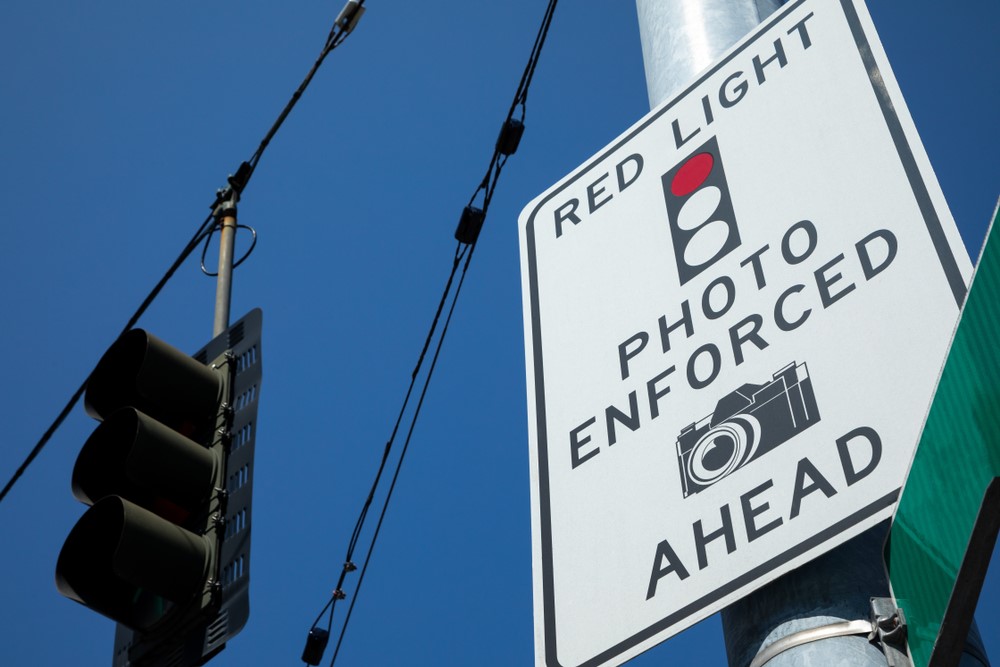Do Photo Radar Tickets and Red-Light Camera Tickets Affect Car Insurance?

Have you wondered if a photo radar or red-light camera ticket that caught you speeding or running a red light impacts your car insurance?
The good news is that, generally speaking, photo radar and red-light camera tickets are different from traditional tickets issued by a police officer in terms of how they affect your car insurance rates. There are nuances, however, that drivers should be aware of, especially when it comes to demerit points, the type of violation, and the province you live in.
What are photo radar and red-light camera tickets?
In Canada, photo radar and red-light cameras are automated systems designed to enforce traffic laws without the need for a police officer to be present. These systems photograph or record vehicles that exceed the speed limit (photo radar) or run a red light (red-light cameras), and the vehicle owner is issued a ticket based on the evidence captured.
Even though you may not interact directly with law enforcement at the time, photo radar and red-light camera tickets can still carry serious consequences when it comes to your car insurance.
Do these tickets affect your insurance?
In Canada, photo radar and red-light camera tickets typically do not directly affect your car insurance rates. This is because these tickets are classified as administrative violations, and no demerit points are assigned to your driving record for them in most provinces.
Note that the vehicle owner is usually the person who receives the ticket, not the actual driver at the time of the violation. If you were the driver, but the ticket is in someone else’s name (like a rental car or a company vehicle), your personal driving record may not be affected, though it still remains your responsibility to pay the fine.
When do traffic tickets start affecting car insurance?
Photo radar and red-light camera tickets generally don’t affect insurance premiums directly. Traditional traffic tickets, such as those given by a police officer for speeding, impaired driving, or other violations, can affect your insurance rates. These tickets often come with demerit points, and insurance companies can view your driving record when determining your premium.
Demerit points accumulate on your driving record for moving violations, and once a certain threshold is reached, you may face consequences such as higher car insurance premiums or even suspension of your driver’s license.
For example, if you accumulate a significant number of demerit points due to speeding or reckless driving, your insurance company will consider you a higher risk, which could result in an increase in your premium. On the other hand, a single red-light camera ticket or photo radar ticket, which does not add points to your record, typically won’t affect your insurance rates.
When do photo radar and red-light camera tickets affect your driving record?
In most provinces, photo radar and red-light camera tickets are handled as non-moving violations and treated similarly to parking tickets. They do not add demerit points to your record. However, there are exceptions in some regions. For instance, certain jurisdictions may report these tickets to your driving history if there is a failure to pay or if the ticket is linked to a more serious violation, like unpaid fines leading to a suspension of your license.
What to keep in mind
Payment matters:
Even if a photo radar or red-light camera ticket doesn’t directly impact your insurance premiums, failing to pay the fine can have serious consequences. Unpaid fines could lead to a driver’s license suspension or other legal consequences, which may, in turn, affect your insurance rates.
Accumulating violations:
While a single ticket from a camera system might not affect your insurance, multiple traffic violations—whether from photo radar, red-light cameras, or police-issued tickets—can lead to higher premiums if you develop a history of unsafe driving.
Driver’s license status:
If you are involved in accidents or incur significant penalties that affect your driver's license status (e.g., suspension, probationary license), your insurance premiums may increase significantly. It’s always a good idea to check your driver’s record regularly to ensure there are no errors or overlooked fines.
In summary, photo radar and red-light camera tickets in Canada are typically not a direct cause of higher car insurance rates. They do not usually result in demerit points being added to your driving record, which is one of the primary factors that insurance companies consider when determining your premium. However, it’s important to stay on top of all your traffic violations and ensure that you pay any fines promptly, as failure to do so could result in consequences that may ultimately impact your insurance rates.
If you're concerned about how a traffic violation may affect your driving record and insurance, it’s always a good idea to contact your insurer directly or consult with a local insurance expert for more information.



